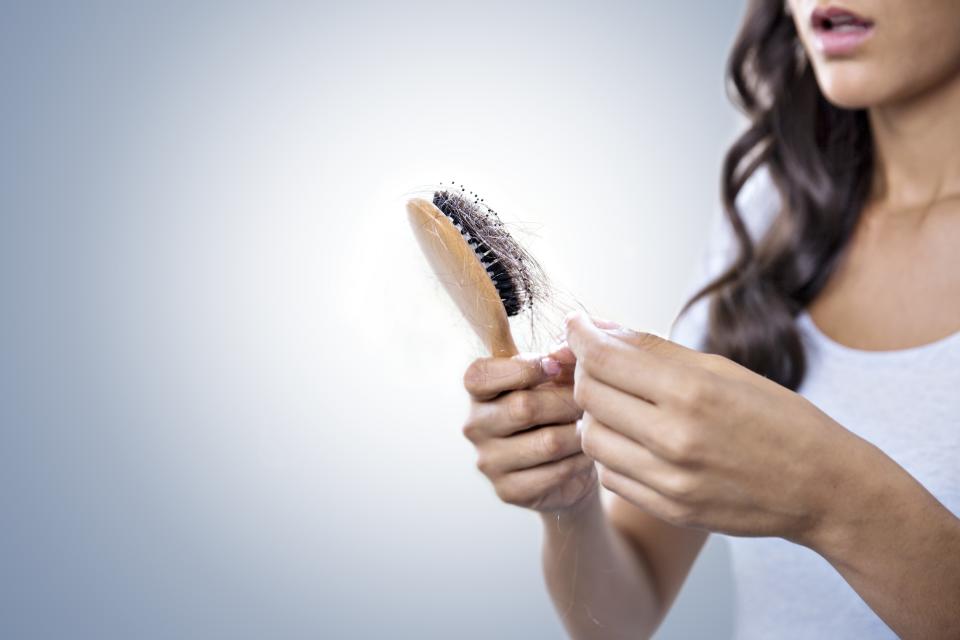Here's why you might be losing hair during isolation
The coronavirus has a lot to answer for - hundreds of thousands of deaths, countries being catapulted into lockdown and countless people losing their jobs worldwide.
It’s also had some serious side effects on people, as the world deals with the mental health issues stemming from COVID-19 isolation and having to adapt to the ‘new normal’.
And now, people are reporting that they’re losing their hair in isolation, with clumps of their tresses falling out in the shower or attaching themselves to hairbrushes.

We spoke to the experts to find out what the reasons behind this might be and how you can minimise the amount of hair you’re losing.
Before we start, it’s pretty important to say that while the issues listed below could be causing your hair loss, you should visit your GP if you think it’s more serious.
Stress
“A major event such as a health pandemic can lead to a high level of stress. Extreme stress can limit or in some cases halt hair growth,” co-founder of hair supplement brand AÉDE and hairdresser, Ruth Robalino, told Yahoo Lifestyle.
“When your body faces extreme stress, it’s understandable that your body reacts accordingly, and in this instance, extreme stress can result in hair loss or excessive shedding”
This could happen in two forms, one called telogen effluvium, when hair prematurely moves into its ‘resting phase’ stopping growth and potentially causing bald patches, or alopecia areata, which is when the immune system attacks the hair follicles causing major shedding.

Trichologist specialist, Megan Wright agrees, saying she’s been practicing in this space for the past ten years and she’s never seen so many cases of stress related hair loss.
“The COVID-19 pandemic has certainly left its mark on some of those who have the genetic predisposition for conditions such as alopecia areata and psoriasis,” she told Yahoo Lifestyle.
“Recently, many of my patients have been displaying signs of hair loss and I expect the numbers to grow in the near future because generally any disruption to our immune system will take up to three months to present in these conditions.”
What you can do to minimise hair loss
“We know that stress levels can contribute to hair thinning and hair loss and many other health conditions,” Megan said.
“However, there are steps that people can take to help, such as natural alternatives to the pharmaceuticals available for hair loss, understanding how our lifestyle and emotional state can play a huge role in the health of their hair and scalp and that in a lot of cases, hair loss can be minimised with the appropriate investigation and treatment,” she said.
What else can trigger hair loss?
Jane Mayhead, trichologist at The Private Clinic of Harley Street told Cosmopolitan that while it may make our lives easier, washing our hair less in isolation may be leading to more hair loss.
“The reason for this is simply that hair sheds daily but in varying amounts. It can become trapped together and then when you wash the hairs are released, particularly with conditioners making the hair slippery and untangled,” she said.

According to Anthony Pearce, Specialist Integrative Medicine Trichologist at Anthony Pearce Trichology, women shouldn’t dismiss hair loss, as it could be indicative of an underlying health issue.
“Hair loss in a woman is an indicator of underlying disturbance or deficiency. It’s something that needs to be investigated,” he told Mamamia.
“If a woman is low in iron, vitamin D, vitamin B and iodine, or their insulin levels are off, these things drive your thyroid function and it won’t take much, say, a stressful situation, to rock the boat.
“If you’re low in iron and your body needs that iron to deal with your liver function, it’s not going to worry about your hair, it comes down to priorities. In the same way, hair follicles are the last to recover.”
Got a story tip or just want to get in touch? Email us at lifestyle.tips@verizonmedia.com.

 Yahoo Lifestyle
Yahoo Lifestyle 



